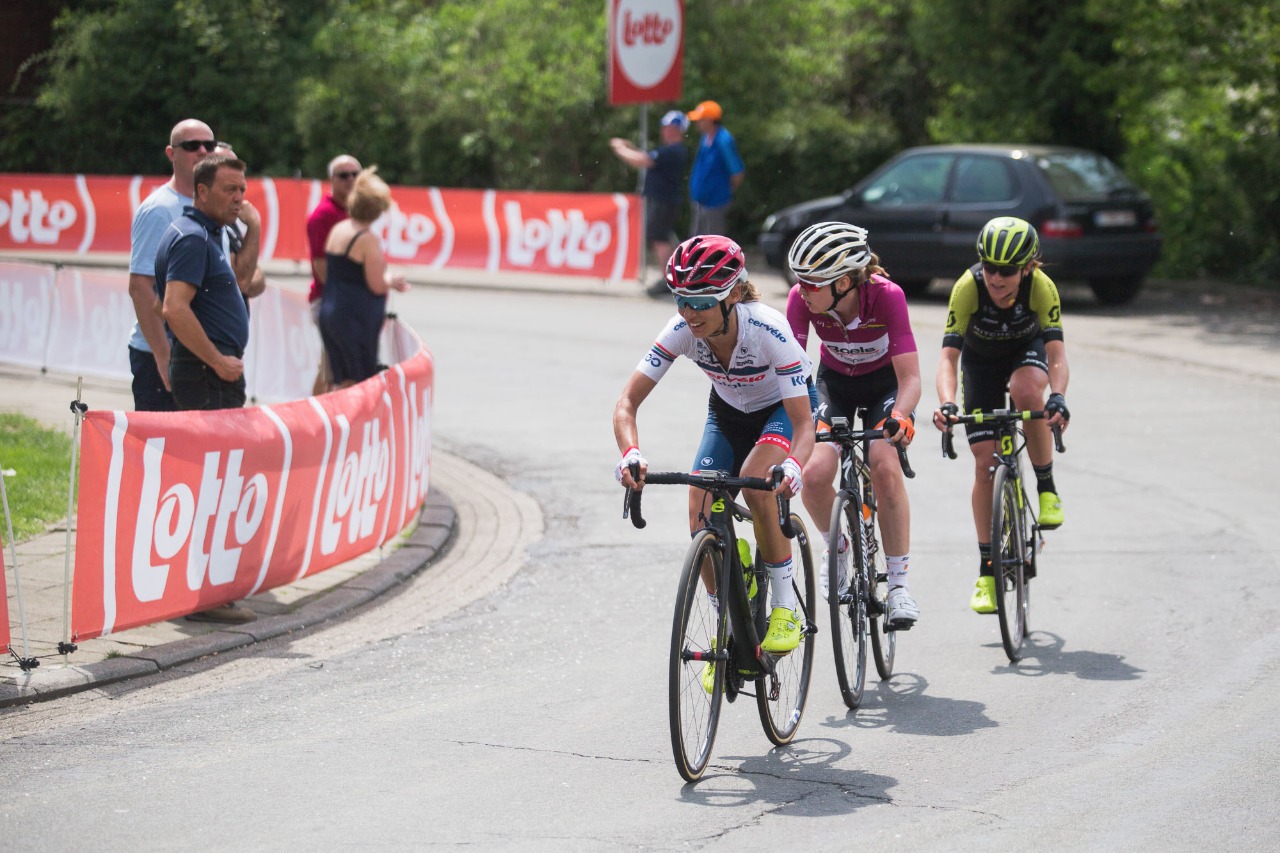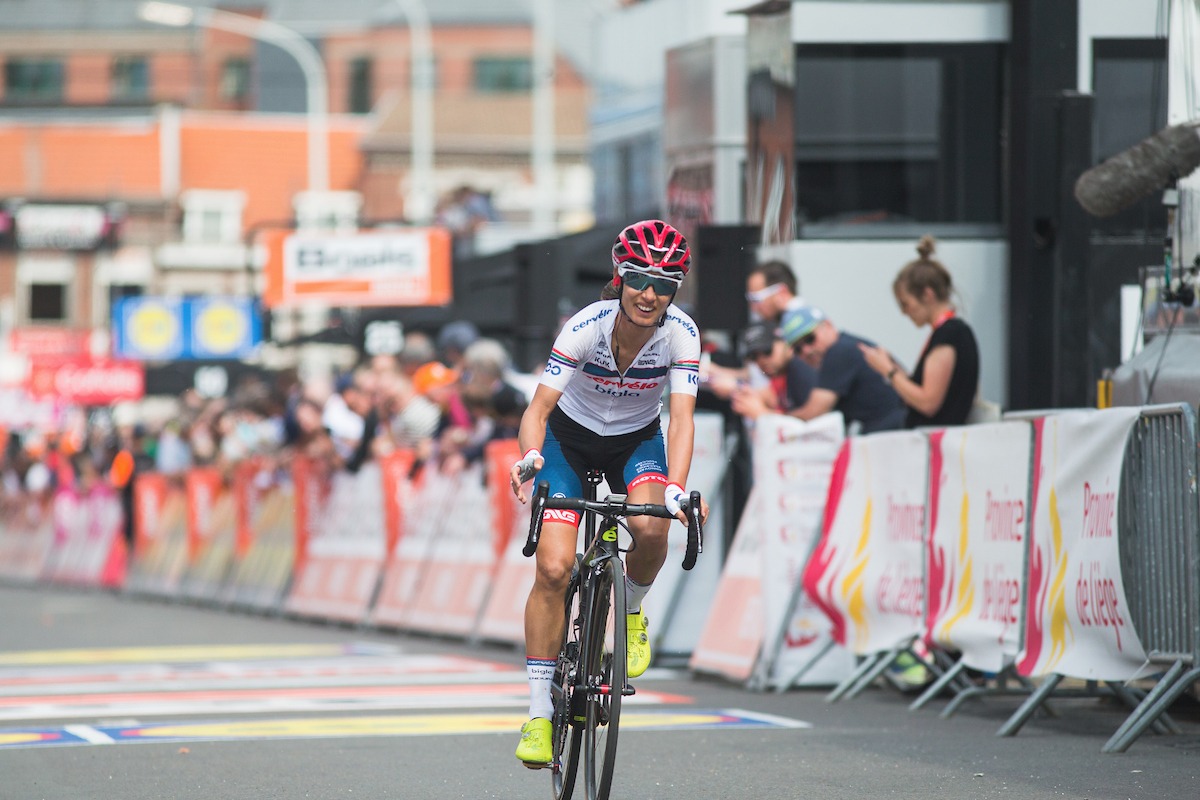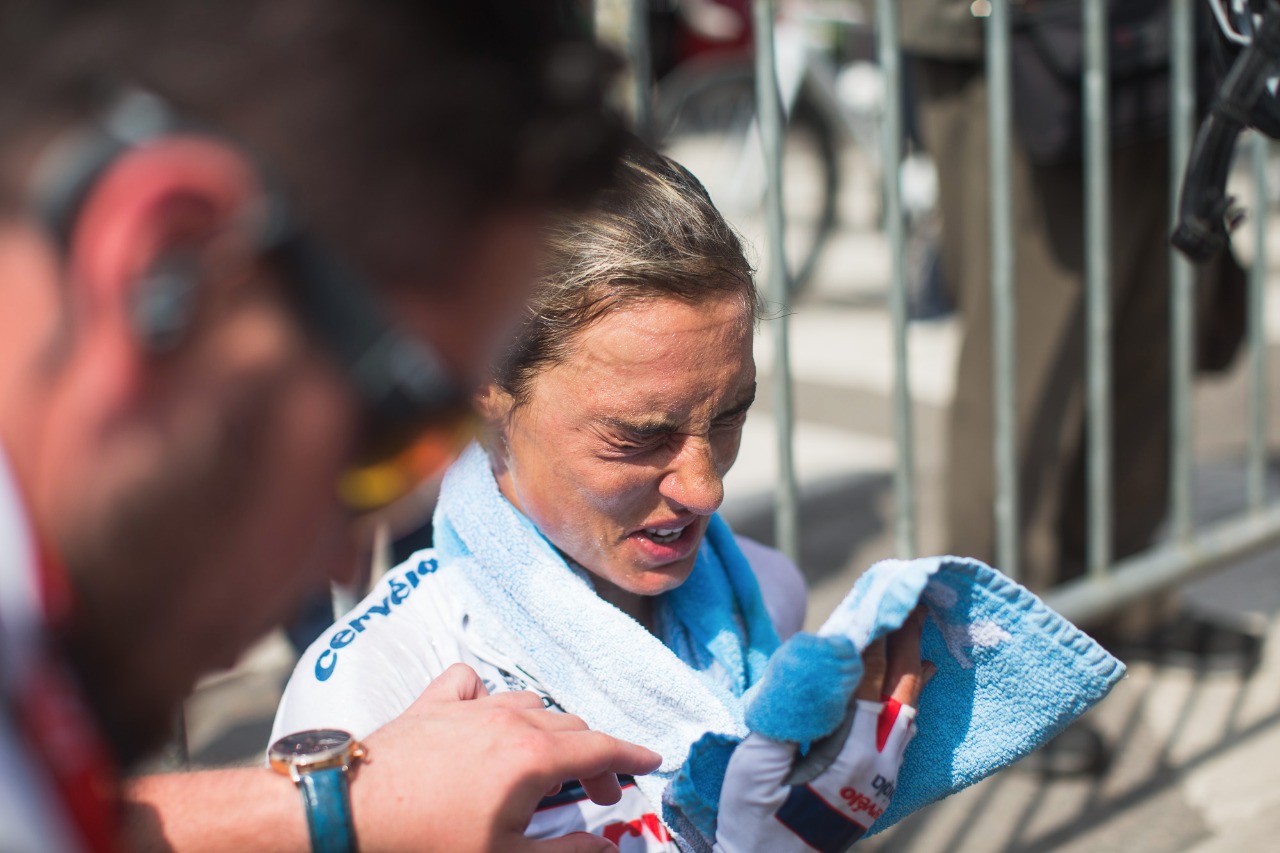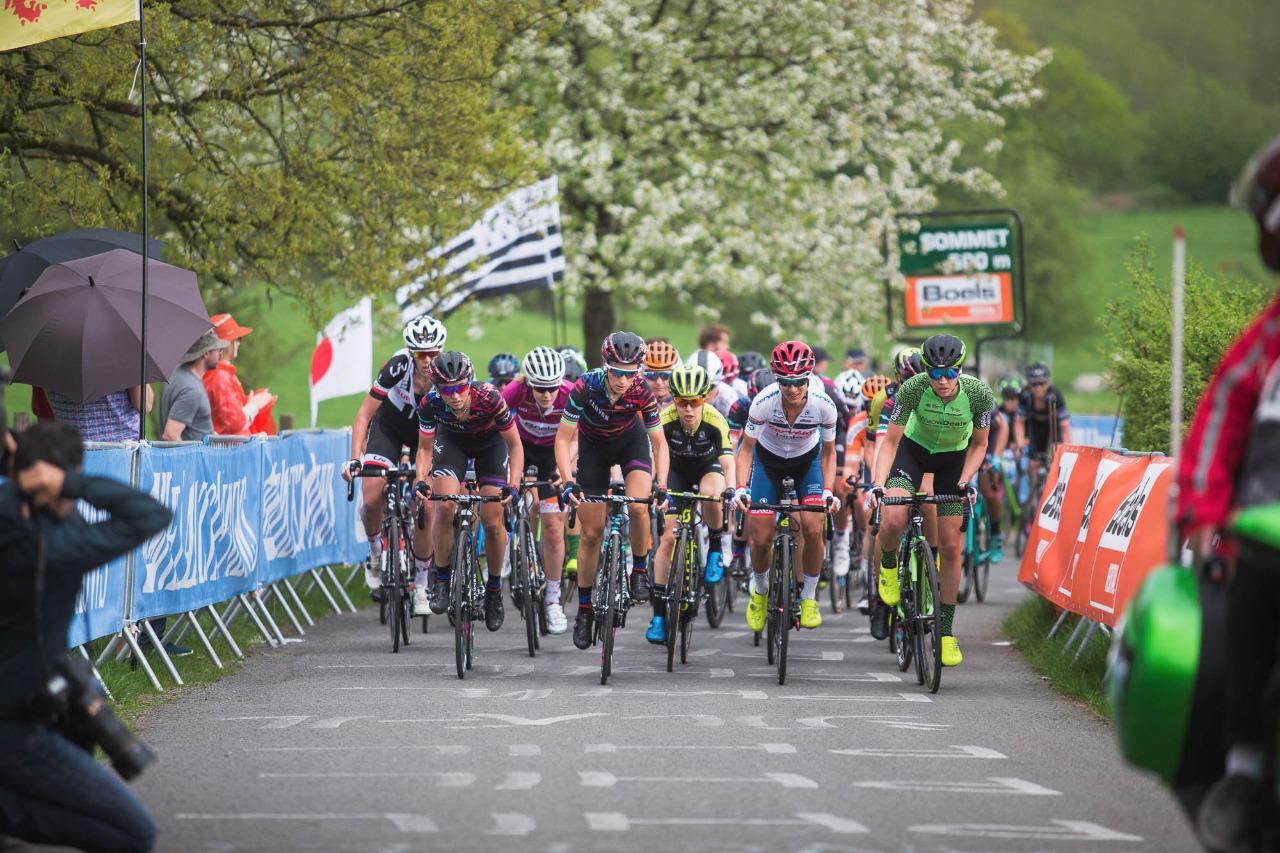The first time I met Marianne Vos
The first time I met Marianne Vos was in South Africa. The Dutch national team were close to my hometown for a winter training camp and, thanks to Martine Bras, they invited me along for a training ride. It was the first time I was star-struck. Marianne was everything in women's cycling, and not only that, all the other riders were also incredibly accomplished and talented. Inside I felt giddy and awkward at the same time. Thank goodness riding a bike is like riding a bike because I'm not sure I could've managed to act normal doing anything else.
We were split up into smaller groups of three and four, and low-and-behold I was with Martine and Marianne. I followed their wheels as we rode out to do an interval session. Looking back, I was still so green. I had only one European season under my belt and it was pretty short thanks to two broken collarbones. Still, I managed to hold my own on the ride and, much to my delight, Marianne was encouraging, friendly, and even complimentary. Since then, we've always had great interactions and I've continued to admire her for her down-to-earth attitude and inspirational leadership, not to mention her cross-discipline achievements on the bike. She's a beacon for women's cycling in so many ways.
When the offer came for me to co-lead WaowDeals (soon to be CCC Team) with Marianne Vos, I was beyond excited. I thought back to when we had first met and how young I was in the sport. It has taken an immense amount of work to get to where I am today and now here was an opportunity to lead alongside a rider I have always looked up to.
Honestly, I thought I would never leave Cervelo Bigla. We've worked really hard as a team to create a culture that operates with integrity - on and off the bike - and still has an ambitious positive spirit. I've also just had the best season of my career so why, and how, could I walk away from all of that?
The more you race, the better you are at reading a race. You learn what a successful attack looks like, what wheels to follow, and when to make a move yourself. It's always a now or never moment. If you hesitate, if you decide it's too risky or not worth the effort, you could miss the winning move. The move that would have set you up for growth and greatness, the move that becomes the effort you remember, the risk that paid off, and the decision that made all the sacrifices and hard work worth it, the move that gives yourself a chance.
When the offer to ride with Marianne on WaowDeals came, I knew it was the move. Thank goodness it wasn't a race situation, because I definitely hesitated thinking about my current team, but it's the right opportunity, with the right people, at the right time and I want the chance.
A huge thanks to everyone at Cervelo Bigla; the staff, sponsors and riders, for their belief and support over the years. I wish everyone at Cervelo Bigla the best of luck and I look forward to seeing their future successes.
May your choices reflect your hopes, not fears
The last time I wrote publicly, I declared that an African would stand on the podium of a Grand Tour for the first time in history. It feels remarkable to deliver on that statement.
Coming second at the Giro Rosa after 10 days of aggressive, exciting, and demanding racing was incredibly satisfying. To back that up with Cille's fourth and my third at La Course only 48 hours later shows the depth of capability and dedication at Cervelo Bigla. Never have we gone so deep, pushed so hard, or fought so bravely. At one point during the Giro, I saw Clara Koppenburg in tears while she was still laying down the power.
To declare a massive ambitious goal publicly was equal parts scary and energising (maybe more 60/40), but we weren’t going to the Giro to lose. We went in with the hope of winning, and used that as our 'north arrow'. We were going to make attacks and believe they would be successful; we were going to ride like a big team because we could influence the outcome; we were going to race the Giro Rosa because we could win. We made sure that every choice, as Nelson Mandela scripted, reflected our hopes, not fears.












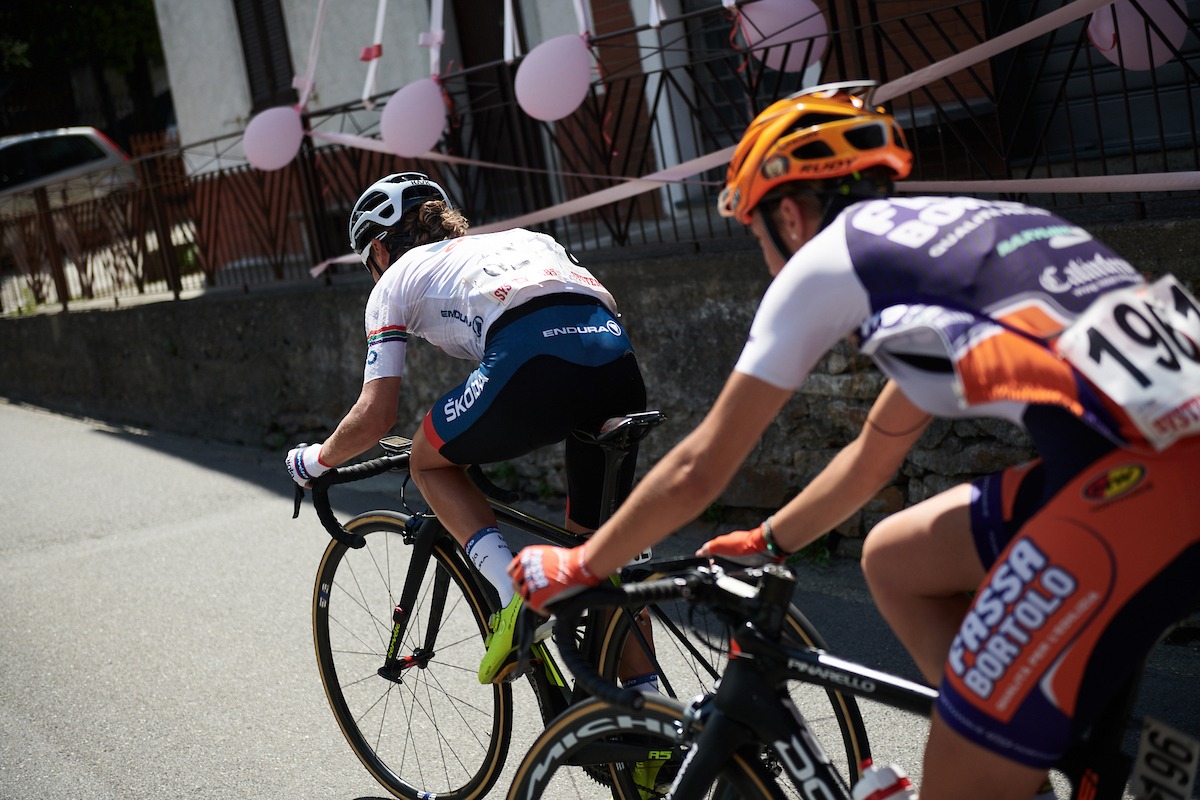

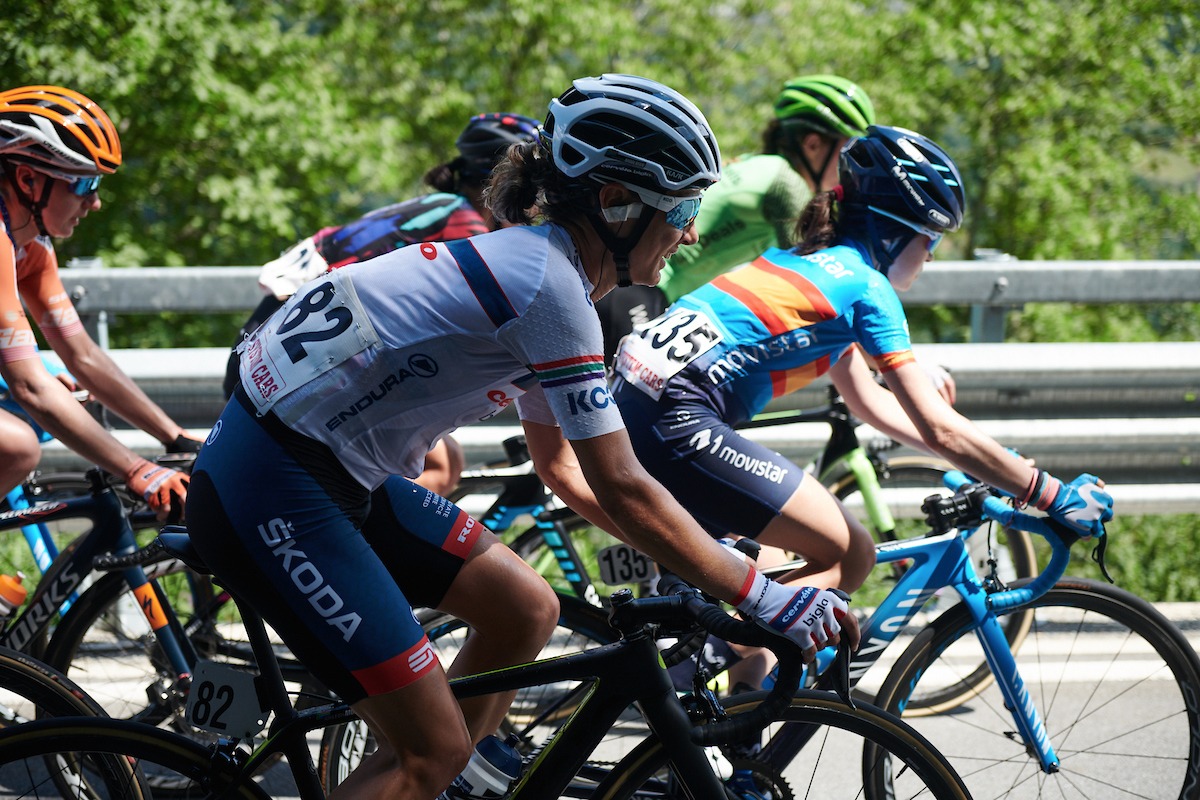
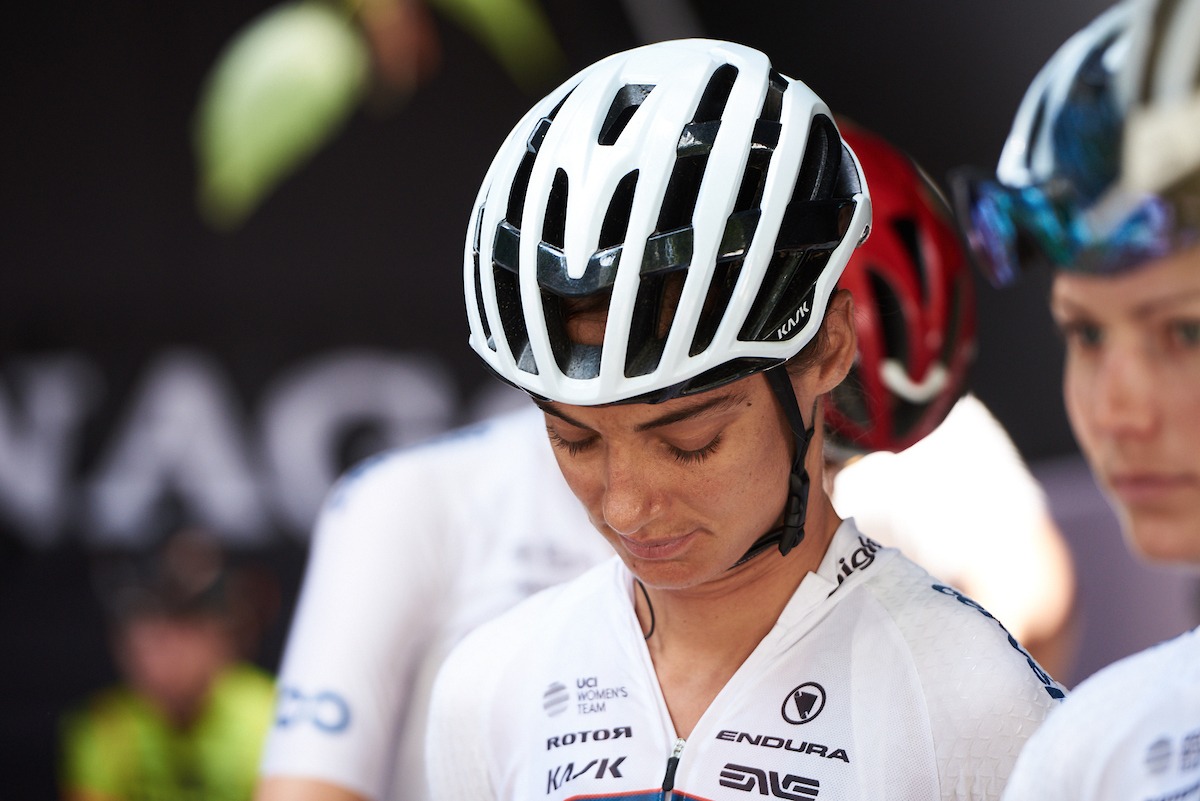



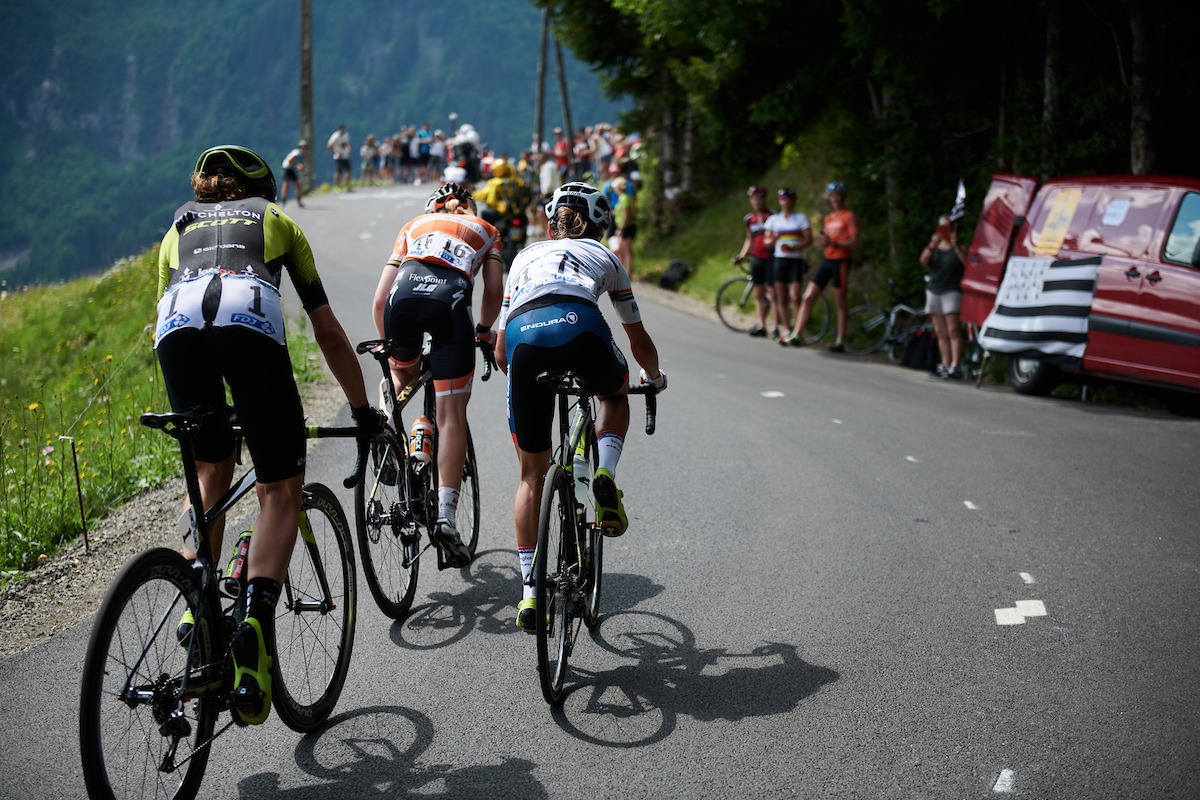

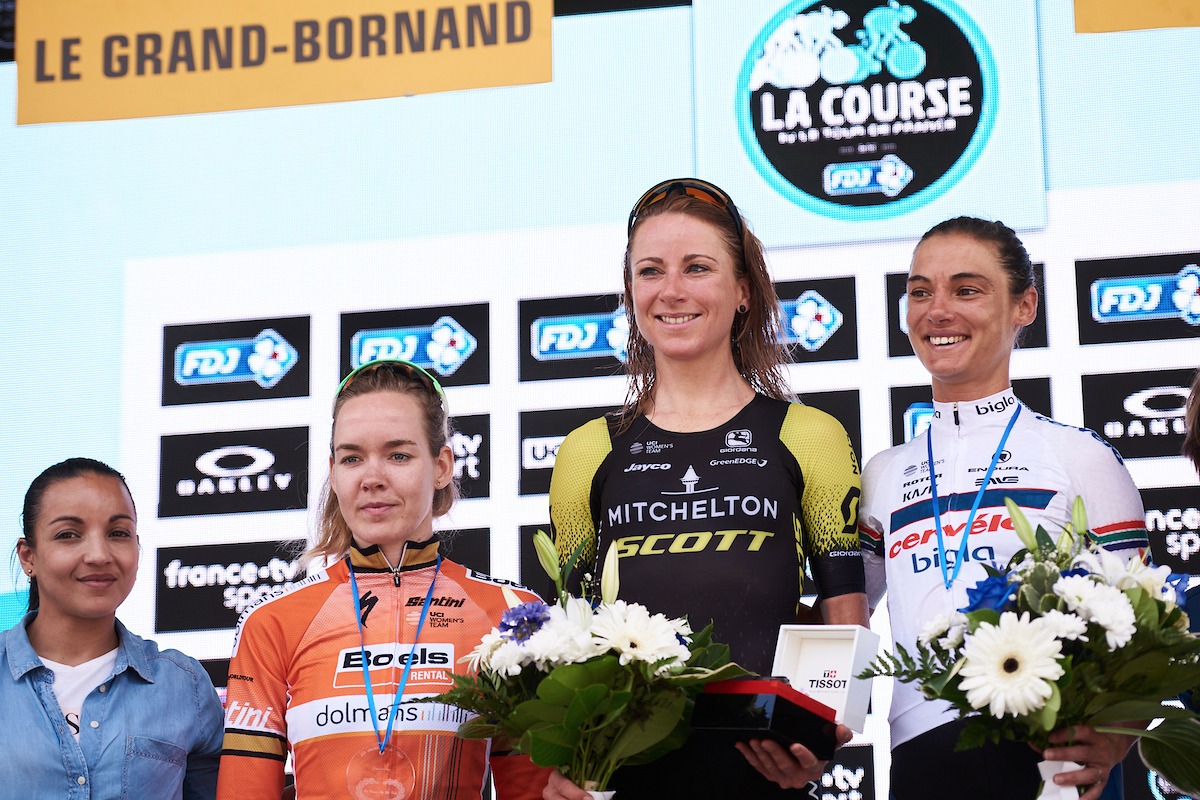









There were many times during the race when that strategy was challenged - when we lost two riders in the first few kilometres of the opening team time trial due to unforeseen mechanicals, when I crashed 8km before the finish line on stage 4 and almost lost everything, when Clara stood up to cover another attack on stage eight after I thought she couldn’t possibly turn another pedal stroke. Time after time we held onto our hope.
There have also been moments when our gutsy choices guided us to exactly where we had hoped to be, like when Cille attacked at La Course and I got to watch the entire bunch scramble and discuss what the heck they were going to do, or , back at the Giro, when I crested the Zoncolan in second place, chasing the pink jersey solo, and, of course, stepping up onto that final podium for second overall.
We raced with the hope of winning not the fear of losing. It was an ethos the whole team had to adopt, and we aren’t the only ones. I recognise it in the other women I race with, the teams of people behind each event, every family, fan, and sponsor. I see it when, like at this year's Giro, there are bigger crowds, more community engagement, better media coverage, and challenging courses. I feel it when the women's peloton delivers an exciting show and world-class performances. I feel it when I'm the first African to podium at a Grand Tour.
If there is just one thing the organisers of the Giro Rosa and the incredible teams that raced it proved that Cervelo Bigla's success proves it's that, if you choose to let it, hope will guide you to incredible places.
Beat the Odds
Anyway you slice it, four against six made us the underdog. Festival Elsy Jacobs is a an annual favourite of mine (especially because there is fantastic online live coverage) but showing up with only four riders against the big teams of six meant it was going to feel like a new race.
Cille had made the podium in the prologue but, after being caught behind a crash, we all walked away from the second day disappointed. We were also down to just three riders going into the final stage thanks to a sore throat. It seemed like the odds were just too stacked against us but it’s not always a numbers game.
I broke away. It was my second break of the day and there were 40km left so I set more conservative tempo, hoping to attract some company. Race leader Christine Majerus and Alexis Ryan of Canyon-SRAM joined me which eventually enticed a large group across. As we merged, it was obvious everyone was waiting for the final hills to attack. Not me.
I caught everyone off guard. It wasn’t the textbook place to make a move but it was the perfect moment. I got away solo with only 20km of road until the finish and the chase was on. I drove it hard, feeding off the energy of having the biggest teams in the peloton hunt me down. I found out later Majerus was really feeling the pressure while Lotta played it perfectly cool.
Of course, sometimes it is a numbers game. Eventually I was caught but, even without a lead out, Lotta sprinted into second place. We might not have won but Cervelo Bigla definitely beat the odds.
Race big
We showed up at Liège-Bastogne-Liège ready to go big. After our 2nd place at La Flèche Wallonne, we were on a high and everyone wanted to push a little farther, swing a bit bigger. But Liège is not Flèche.
Flèche always, always, always comes down to a few riders on the Mur, but Liège is a race that can be won by different types of riders and different types of strategies. The sprinters can make it over the climbs, a break could win…the possibilities come down to who is willing to make the race and we wanted to be those riders.
Being aggressive isn’t just one moment of attack. Before that moment there is an orchestrated sequence of events carried out by different members of the team. Emma Norsgaard our 18 year old last minute substitution, had to get over La Vecquee and help me on the descent; Ann-Sophie Duyck buried herself to survive long enough to place me leading into the La Roche; Cecilie Uttrup Ludwig had to lead me out into Saint-Nicolas. As we approached Côte de La Roche, everyone had done their part so it was my turn to execute.
We hit the bottom of the climb and I attacked. The big players followed. The same three riders I was with in the final hundred meters of Flèche were on my wheel: Anna van de Breggen, Annemiek Van Vleuten, and Megan Guarnier A group joined us from behind and, after two moves were neutralized, Amanda Spratt got away solo.
On the penultimate climb, it was time to swing again. We hit the bottom and I attacked. Anna and Annemiek followed. I pushed the pace but at the top Anna counter-attacked, eventually bridging across to Amanda. I was left with Annemiek glued to my wheel.
I could see Anna and Amanda up the road but I knew Annemiek was not going to help me chase her teammate down. I also knew there was a group chasing us from behind. My brain ran queries, trying to figure out the best move. The odds were, let’s just say, unfavourable but I owed it to the team to try. I knew it was going to take some miracle to finish third but maybe we would rejoin? Maybe I had enough to hold off the chasing bunch behind us and finish at least fourth. We hadn’t shown up to race Liege conservatively.
I put my head down and went for it. I could almost feel the weight of Annemiek in my legs as I towed her to the line. Naturally, she attacked and out-sprinted me but I had managed to hold off the chase pack and finish in fourth.
Of course we wanted to win, to get a podium, but when the ride from start to finish is that exciting, when your team spirit is unmatched in the pro peloton, when you race that big, you definitely have no regrets.
Podium at Fleche Wallonne
Danger, danger, danger, danger… I could feel a prickle of panic rise up in my body as Canyon’s lead out into the Côte de Cherave unleashed a threatening breakaway. We weren’t represented. Up until now the day had gone perfectly but, with 30km to go, that was rapidly changing.
We were down to two riders, Cecile and myself, having recently lost our other key player Marie in a crash. I had been lucky to avoid the stack but with only two pairs of legs and a 25 second gap no one wanted to close, the odds didn’t look good. Still, we had one card to play.
In the effort of her life, Cecille drove the pace on the front of the bunch. With barely any help from other riders, she rode herself into the ground, but managed to keep the gap steady and the break within striking distance. As we climbed up the Côte de Cherave for the last time, I passed Cecille and knew the rest was up to me.
We bounded onto the Mur de Huy. The breakaway was just in front of us, the catch timed perfectly, and I fed off the energy my team had put in to get me there. This was as high stakes as it gets. Go too early on the steep Mur and you can literally blow up in the last 100m and lose the race. I was the first rider to make contact with the break, and as we all merged and split again it was Megan Guarnier, Anna van der Breegen, Annemiek van Vleuten, and me. The climb got steeper as I took the lead.
The average gradient of the Mur is 9.6% but there are parts up to 26%. The steeper it is, the more each pedal stroke hurts but the steeper it is, the better it suits me. We had planned exactly where I would attack. I had watched past videos of past winners. I had landmarked the brick building on the left as my signal. There comes a point where you have to push all the chips in and this was it.
Except I was boxed in. Pinned to the barriers and then stuck behind in second wheel, Boels did an excellent job of keeping me right where I couldn’t attack. I tried to go left, then right, then left. “Let me out,” I wanted to scream. Catching a sliver of space, I slammed my pedals and aggressively slipped through a small gap on the left. My attack point had come and gone and with only 150m to go, it was time for everyone to lay their cards on the table. Anna van der Breggen sprinted into first while I gave everything to proudly finish second.
I’d love to win but second at Flèche Wallonne is fantastic, especially after the team worked unbelievably well. Let me just say that I got up on the podium as an individual, but I wasn’t just up there as Ashleigh Moolman-Pasio; I was on the podium representing the 10-person kick-ass Cervelo-Bigla team (staff included) that finished second in a World Tour race. Guess we played our cards right.
Commonwealth Games 2018
Ashleigh on her way to win Bronze in the Commonwealth Games Road Race in Glasgow
I never thought I would have to give up an opportunity to represent my country at the Commonwealth Games. It is such a privilege to qualify, even more so to be selected to represent your country at a world event. Thinking about the last Commonwealth Games where I won my bronze medal, I get a rush of emotion. Undoubtedly, it was a breakthrough race in my career and getting up on that podium was big moment for me, my family, and everyone who helped get me to the start line. I felt so much pride as a an athlete, as a South African, and a as a woman.
I will not be competing at the 2018 Commonwealth Games. For the past few months, I’ve had multiple discussions with my trade team, Cervelo Bigla, and SASCOC and, after exhausting all possible scenarios, we have decided focusing on my goals in Europe is the best path for success.
SASCOC and my team have both been very supportive and patient during the decision making process. We considered how the road race course didn’t suit me, especially against the depth of the big cycling nations such as Great Britain and Australia. We considered just going to compete in time trial but it’s a specialist discipline that needed more preparation time than we had available. We also considered that April is the most important racing for me during the European season. Everyone at Cervelo Bigla, myself included, have been working towards specific goals during the Spring Classics and I would have to abandon my team and my position as lead rider during those key races. Add in the toll of travel, jet lag, and the high personal expenses I would incur and we all knew what the logical conclusion was.
It took a long time to accept that the math just didn’t add up. I knew a while ago in my heart the best thing to do was to miss Commonwealth, but it took a lot longer to make the official decision. In the end, it wasn’t about choosing one over the other; it was about choosing where I could be the most successful, where I could be the best athlete I could be, where I could represent my country in the best possible way. I know not everyone will understand but I hope everyone will respect the decision we have arrived at.










